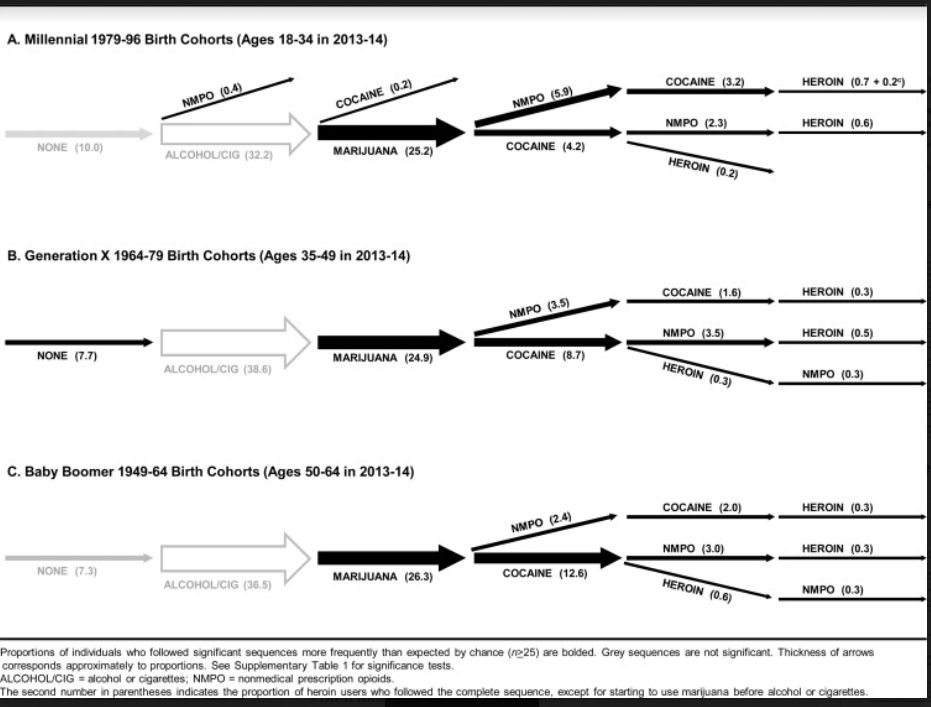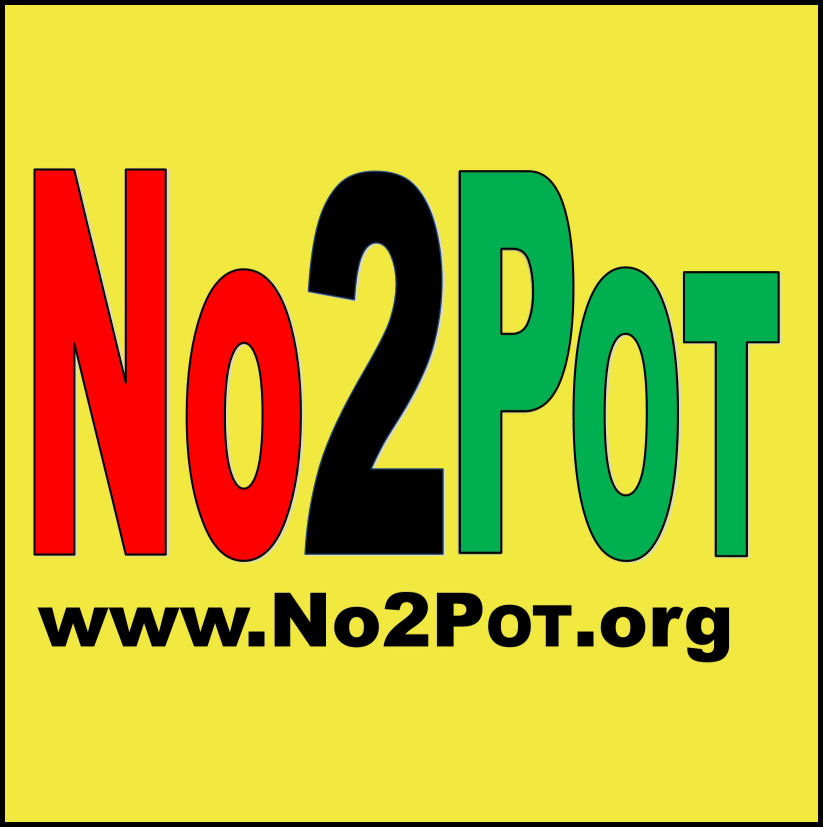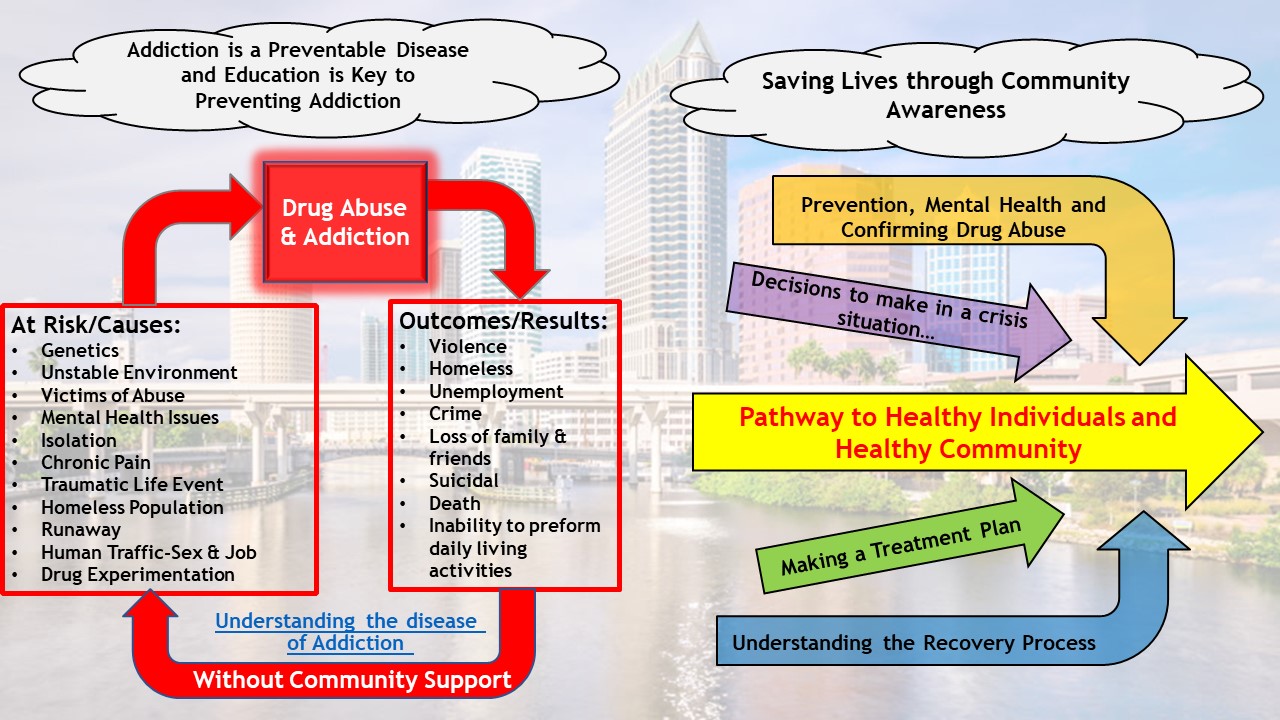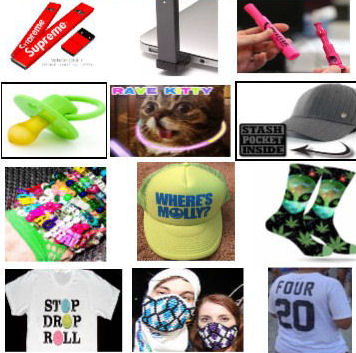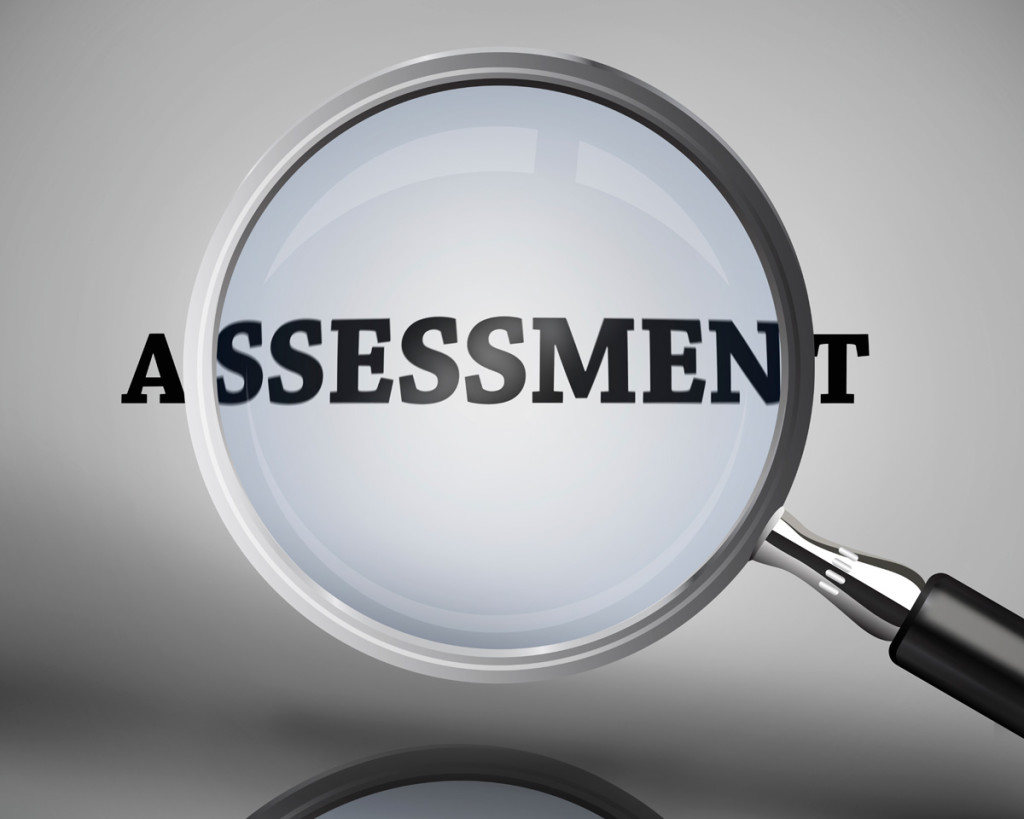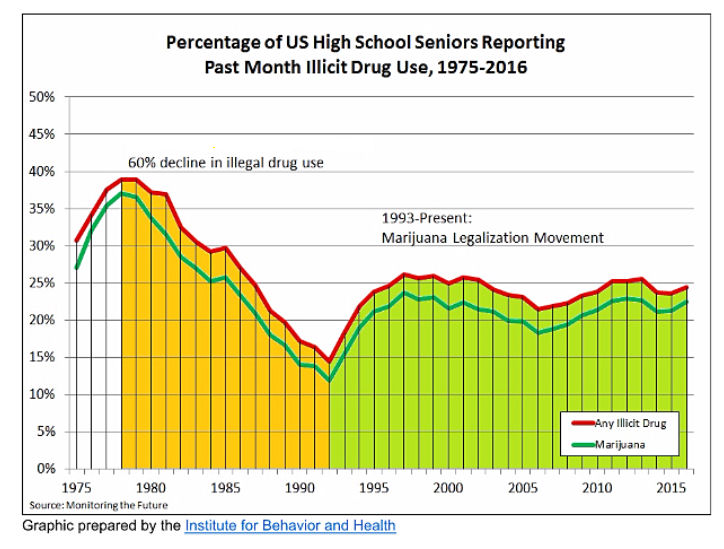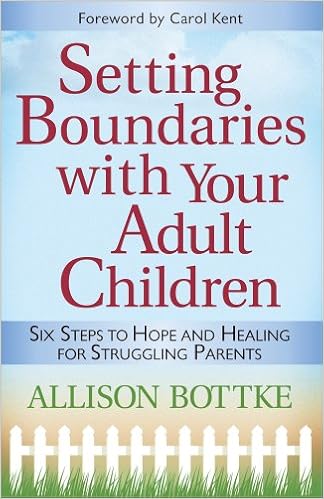Treatment Recommendations
Treatment is often the beginning of recovery process but it is not always possible for a variety of reasons... work, cost, time....-while deciding AA & NA, Celebrate Recovery and other support groups are a great way to begin a new healthy lifestyle. Treatment programs are similar to taking a course (many different levels from a crash course to a “PHD” level depending on what meets the needs of the individual). It is not a cure but a stepping stone towards recovery.
Treatment programs are often the next stop after detoxing. Be assured any program even the best is only successful if the person implements this healthy lifestyle when they transition home (often a new environment is the healthiest).
RECOMMENDATIONS: Essential components for a potential successful program whether residential, outpatient, or at-home should include: intense/formal follow-up programs, highly structured program, family counseling sessions and spirituality components.
Four Essential elements of programs that offer the best rate of success should include:
1. A highly structured program with a daily activities schedule - meetings and often assigned job tasks at the facility or partnerships with local shops/companies
2. A formal transition program - i.e.., residential to intense outpatient then tapering down to less intense outpatient program. Residential may not be necessary nor feasible. Look for intense outpatient programs. Some facilities offer structured evening programs- the key is to have a day full of structured activities particularly the first several months of recovery. Having a good relapse prevention program or recovery enhancement program will help a person with their transition back into the “real life” and allows a person to gradually utilize their newly acquired skills and strategies into their personal environment. Is there an alumni program?
3. FAMILY program - if the family is not involved in the recovery process, they certainly will be a part of the relapse process! The family or close friends need to educate themselves (be on the same page as the person in recovery) on the complexity of addiction and recovery.
4. Spirituality in program- Recovery involves the mind, body and spirit. Spirituality help a person find a purpose in life and renew a sense of hope. Spirituality has a personal meaning for every individual but most importantly it will offer a person a since of hope and meaning. Spirituality is “an inner sense of something greater than oneself. Recognition of a meaning to existence that transcends one's immediate circumstances.” Spirituality is distinct from religion. The AA/NA programs works on developing the spiritual side to life and a successful recovery. In my opinion, it is moving from the self-centered life of an addict to a compassionate, self-giving life of a caring, person working on recovering.
Medically Assisted Treatment Options
CHECK FACILITY REVIEWS...before calling to save time... all places look great on the website- marketing is good but reality is how the patients and family have been served.
Evidence-based programs are key to treatment and recovery. Evidence based practice (EBP) is the conscientious use of current best evidence in making decisions about patient car. The three components of evidence-based practice: clinical expertise, current best evidence, and client/patient perspectives.
- If person is in detox or hospital... begin to develop a treatment and recovery plan.
- The person should begin to attend support meetings also helpful for families and friends to attend cooresponsing meetings.
- Begin random drug testing.
- Begin to educate yourself, the person with addiction and family. The more you learn, the more successful treatment and recovery will be for everyone. link to literature
Because denial is often a characteristic of addiction, many people who are addicted to or who abuse drugs won't seek medical treatment on their own. Family members, friends or co-workers may need to persuade the user to undergo screening for drug addiction. Breaking a drug addiction may involve counseling, an outpatient treatment program or residential treatment.
It is important to remember that many opiate addicts relapse after their first detox/recovery attempt because they don't have a recovery plan nor a support group they are quickly willing to become engaged in as soon as they detox.
Statistically the recovery rate for those people who attend programs voluntarily vs. those people who are forced into recovery are the same. Most people suffering with an addiction are not capable of making good decisions (if he/she were able to make a healthy & rational decision surely he/she would decide to stop using and seek help).
Don’t confuse cost of a program with the quality of a program. The more you pay doesn’t equate to a superior program. Some of the best programs are run by non-profit organizations particularly those run by churches. Often 30-day programs are a little more than a glorified detox. If you think you need to go to a residential program and can only afford it for 30-days then look for a program that has a good outpatient (follow-up) program. It make take 2-3 years to relearn how to make healthy, rational decisions and to build confidence in your new lifestyle.
Building Bridges - A Tip Sheet for Families Considering a Residential Program
Recovery is similar to learning a foreign language!
Recovery is similar to learning a new language– a person may submerse themselves in learning a new language maybe go to a another country (rehabilitation). Learn the language and feel confident. When they return home, to an environment that does not speak the language, maintaining fluency (maintaining a drug-free life) is difficult. The person should attend groups that know the same language (NA, AA meetings, support groups… ). Not only does this help maintain fluency but the person may find comfort knowing others who speak the language and make new friends who enjoy similar activities. The family should attempt to learn some words or sentences to help the person remain fluent (stay sober). The family needs to help and be helped too. Attend support meetings to learn the ‘language’ (better understanding this disease) and realizing other people are going through similar situation is often very useful for the family and for the individual.
Addiction Rosary- For Families and Loved Ones Struggling with Addiction
Recovery Process
Recovery is an ongoing process to obtain and maintain good health and learn how to make healthy & safe choices. It is not a quick fix i.e. go to a program and come home fixed. It is more like a program to learn a new language. The person goes to a foreign country to learn a new language. He/she learns the language, becomes proficient, then comes home. No one in the house speaks the language... what happens? In order for a person to maintain a healthy lifestyle they must continue to use the new language they have learned... this means going to support groups, counseling and engaging in other activities to help maintain this healthy lifestyle.
- Eat well, establish good sleeping habits & exercise
- Develop a spiritual life to maintain hope and guidance at all times
- Stay busy; establish a structured life
- Formally serve others when the time is right
- When the time is right do something you have always wanted to do… study a new language, new hobby, join a local sports team, join a book club.
THERE IS A DIFFERENCE BETWEEN ABSTINENCE AND RECOVERY.
Abstinence is the first step in recovery from drug abuse or addiction.. Also, needs to address the physical and psychological damages the body and mind have undergone. At a minimum begin attending support group meetings while looking for a good counselor or psychologist that will work with the family. Physically, the person most likely has neglected food and exercise and would rather drink or use than do anything else. The lack have food and exercise may have made the body and mind weak. When a person first stops using he/she may suffering from withdrawal symptoms (often flu-like symptoms), and may be depressed. The brain is struggling to balance itself without the use of artificial chemicals. Strongly encourage them to eat well-balanced meals. Begin walking everyday then gradually begin to increase exercising. A person may crave sugar products/drinks while in the beginning stages of recovery.
SUCCESSFUL recovery is consistently maintaining the new healthy lifestyle...such as committing to a support group, leading a structured life, continuing faith-based support...
Treatment and Recovery
FACILITY LOCATOR-
Substance Abuse and Mental Health Services Administration (SAMHSA) Information-
- Principles of Drug Addiction Treatment-research based guide NIDA excellent information
- What is substance abuse treatment? A booklet for families
- Stages of the Recovery Process - T. Gorski (Recovery is not instantaneous but a process.)
|
The first question on your mind may be “What is a facilities rate of success?” Facilities often seem vague when attempting to answer this question or may state something outrageous such as 99%. The reality is many people struggle with addiction for the rest of his/her lives but they still lead productive lives... if they continue to engage in the activies that helped them in the beginning of their recovery... Treatment questions may include: How many clients are clean six months after leaving the facility, one year, two years, five years? (Often people who relapse do not return to the same facility or admit they relapsed... most likely the person did not maintain a healthy lifestyle...might not be a reflection of the program but the person's commitment and environment), How many clients are returning clients?, What is the follow-up program after a client completes residential treatment or out-patient treatment?...If a person is in residential treatment for a year then relapses a few weeks after “completing” the program was the program successful ?Bottom line this is a difficult question to answer. Was it the program or the person who makes it successful or unsuccessful? Interview facilities to better understand their philosophy and policies. 1. What type of accreditation or licensing does the program have? 2. Have there been studies to measure the effectiveness of the program's treatment methods? 3. What medications does the program support or prescribe to treat an addicted patient's other possible medical problems? Is its staff knowledgeable about and willing to consider the use of medication that may help treat addiction? 4. What sort of "aftercare" does the program offer? 5. What does the program do about relapse? 6. Does the program accept your insurance? If not, will they work with you on a payment plan or find other means of support for you? 7. Is the facility clean, organized and well-run? 8. Does the program encompass the full range of needs of the individual (medical: including infectious diseases; psychological: including co-occurring mental illness; social; vocational; legal; etc.)? 9. Does the treatment program also address sexual orientation and physical disabilities as well as provide age, gender, and culturally appropriate treatment services? 10. Is there ongoing assessment of an individual's treatment plan to ensure it meets changing needs? 11. Does the program employ strategies to engage and keep individuals in longer-term treatment, increasing the likelihood of success? 12. Does the program offer counseling (individual or group) and other behavioral therapies to enhance the individual's ability to function in the family/community? 13. Are services or referrals offered to family members to ensure they understand addiction and the recovery process to help them support the recovering individual? Other questions to consider: Typically- psychiatrist administer medication and discuss with a patient if the medication is working and how the patient is adjusting to the medication vs. a psychologist using his/her skills and knowledge of addiction helps the client learn to make good, healthy rational choices and decision to help the client remain drug-free and lead a productive and fully functional life. |
|
|
Better Understanding Treatment: (More to think about...)
National Institute of Drug Addiction (NIDA)
|
|
Detox is not treatment; it’s the first phase of getting stable so a person can connect to the right level of care. Medical Detoxification is a process whereby individuals are systematically withdrawn from addicting drugs in an inpatient or outpatient setting, typically under the care of a physician. Detoxification is sometimes called a distinct treatment modality but is more appropriately considered a precursor of treatment, because it is designed to treat the acute physiological effects of stopping drug use. Medications are available for detoxification from opiates, nicotine, benzodiazepines, alcohol, barbiturates, and other sedatives. In some cases, particularly for the last three types of drugs, detoxification may be a medical necessity, and untreated withdrawal may be medically dangerous or even fatal. Detoxification is most often a precursor of treatment. Detox Facility: Take the person to an emergency room if you can’t find a facility or have any reason to believe the situation is life threatening... particularly if drugs and/or alcohol have been mixed... don’t hesitate to take the person to an emergency room Search the internet for local detox centers. |
|
SEE Support Groups Recommendations: Choosing between an AA and a NA meeting or Al-Anon and Nar-Anon is a personal choice all follow the twelve step philosophy of recovery. Depending on where you live and the availability of meetings you and/or your family may want to attend a few different meetings to determine which one bests fits your personal needs. Getting involved and committed may prove to be more beneficial in your recovery process. |
|
Why should a person with an addiction avoid all mind- altering chemicals (alcohol, drugs, even limiting caffeine and sugar)? Free Naloxone in Florida https://isavefl.com/find-naloxone.shtml |
Support Groups
| Website | Tags | |||
|---|---|---|---|---|
 |
A Journey to Healing Hearts- Tampa Bay This is a support group for those who know the feeling of devastation at the loss of a loved one or friend to a drug related incident. This is an open support group that meets monthly so family members or friends can provide bereavement support to each other. |
Support Group, Tampa Bay | ||
|
|
Adderall Addiction Support If you don’t really need to take it, Adderall side effects can be very serious, because it is technically an amphetamine, a dangerous type of drug for anyone to abuse. Although very rare, an overdose of Adderall can cause cardiac issues, stroke and death. |
Support Group, Adderall, infographic, National | ||
|
|
Al-Anon Al-Anon is a mutual support group of peers who share their experience in applying the Al-Anon principles to problems related to the effects of a problem drinker in their lives. ALSO, Alateen is a peer support group for teens who are struggling with the effects of someone else’s problem drinking. |
Support Group, National | ||
 |
Alcoholics Anonymous | Support Group, National | ||
 |
Celebrate Recovery Celebrate Recovery is a Christ-centered, 12 step recovery program for anyone struggling with hurt, pain or addiction of any kind. Celebrate Recovery is a safe place to find community and freedom from the issues that are controlling our life.
|
Support Group, National | ||
 |
Compassionate Friends The Compassionate Friends (TCF) is an international organization with over 600 local chapters across the United States. It was founded in Coventry, England, in 1969, by Rev. Simon Stephens. When two young boys died within days of each other, Rev. Stephens brought the parents of these children together in hopes they could best support and understand each other through this painful loss. TCF's longevity is a testament to this form of parents helping parents |
Support Group, Maryland | ||
 |
Drugfree- One on One Help Get One-on-One Help to Address Your Child’s Substance Use |
Support, Parents, text, e-mail, call, Support Group, National | ||
 |
Learn2Cope Learn to Cope is a non-profit support network that offers education, resources, peer support and hope for parents and family members coping with a loved one addicted to opiates or other drugs. |
Support Group, Massachusetts | ||
 |
Marijuana Anonymous | Support Group, National | ||
 |
Nar Anon The Nar-Anon Family Groups is primarily for those who know or have known a feeling of desperation concerning the addiction problem of someone very near to you. We have traveled that unhappy road too, and found the answer with serenity and peace of mind. |
Support Group, National | ||
 |
PALS- Parents of Addicted Loved Ones palgroup.org Parents of Addicted Loved ones provides hope and support through addiction education for parents dealing with an addicted loved one. Find a meeting- local meetings! Facebook |
Support Group, National | ||
|
|
Sanity Support A day seldom goes by when I don’t hear from someone who has read one of the (now seven) books in the bestselling Setting Boundaries series or has heard a radio talk show or television program where I’ve been interviewed about this topic. It’s especially exciting to hear from readers who have found sanity by implementing the Six Steps to S.A.N.I.T.Y. and are experiencing life-changing transformation in their challenging relationships. Online support and private Facebook. |
Support Group, National | ||
|
|
Take 12 Recovery Radio Take 12 Recovery Radio and KHLT Recovery Broadcasting is a Faith-Based Recovery Talk and Positive Music Internet Radio Station. The world's oldest recovery radio station broadcasting recovery talk and positive music 24 hours a day with a unique recovery focused show updated weekly. In addition to our weekly shows we have recovery workshops and special broadcast that air monthly. |
Recovery, Radio, Support Group |

